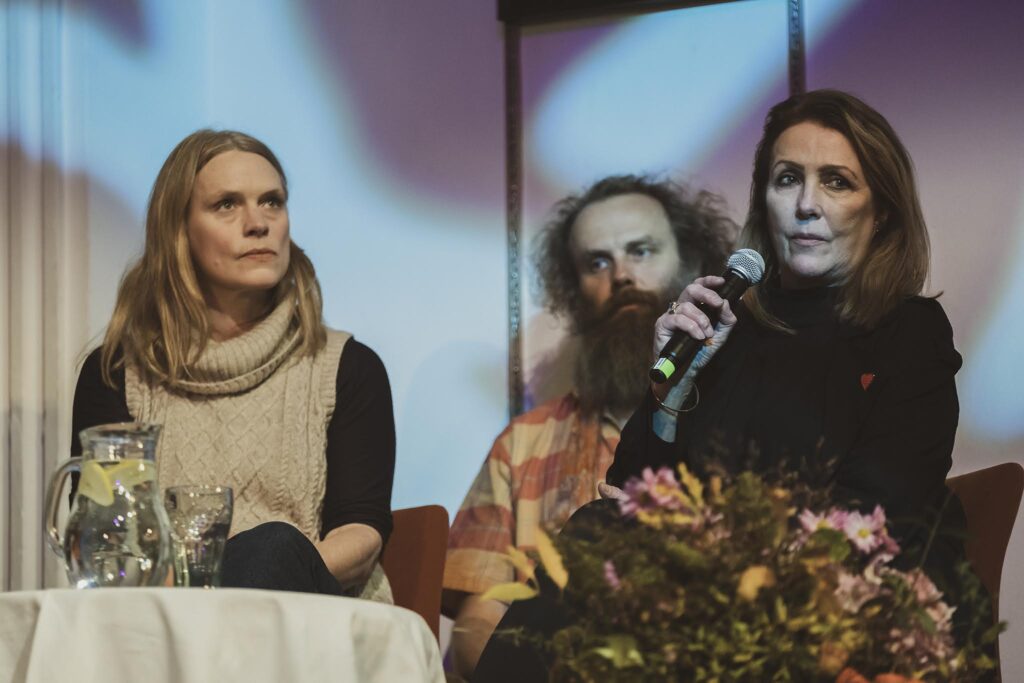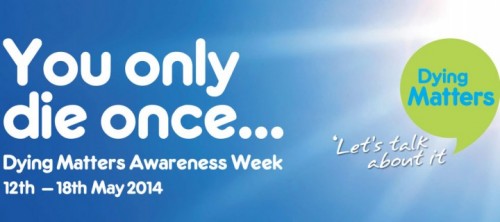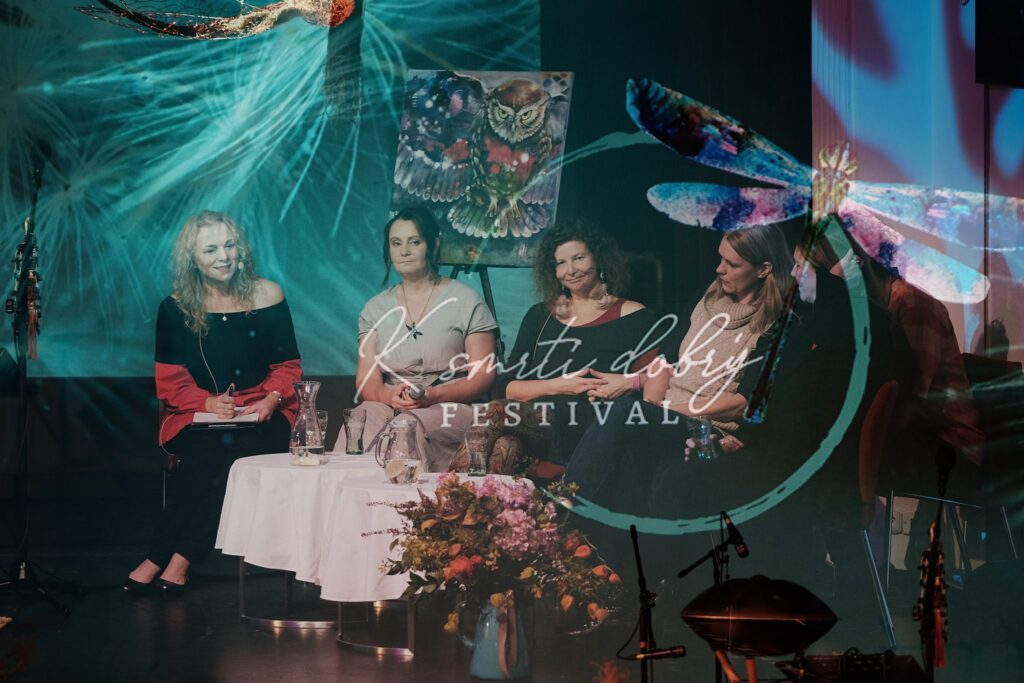
It’s almost three weeks now since Isabel and I set off to be part of the K smrti dobrý festival – ‘A Festival about death and its presence in our lives’, which took place in Ostrava, in the far eastern part of The Czech Republic. We were invited after our fabulous patron, Zenith Virago, was one of the headline speakers last year and suggested that the Good Funeral Guide should be involved with this fantastic event.
We spent months exchanging emails and holding zoom calls with Jana Slavice, the quietly unassuming woman who works as a death doula and is the powerhouse behind the festival. She gently guided us towards agreeing to offer a two-hour workshop, a lecture and Q&A session and a two-day workshop at the festival, and she organised all the travel and accommodation for us, as well as the translators that we needed. We simply needed to turn up on time at Stansted airport.
So, we did. I spent the morning measuring and weighing my carry-on luggage after being warned of Ryan Air’s over officious attitude to cabin bags – this turned out to be the most stressful part of the whole experience (and all unnecessary as nobody looked at the extra cm of length, width and depth of the bag I was carrying). Then I joined the queue for security and immediately remembered how hostile the whole process of flying is – it’s been a while since I was on a plane. The whole ‘your mascara is a liquid and therefore must be placed in this tiny plastic bag along with every other item that could ever possibly be described as not a solid, and if the bag can’t be closed you have to decide which items to place in our enormous bin for contraband’ just hurt my head. (It was travel size shampoo, shower gel and conditioner that didn’t make it to Prague in my case. Or not in my case, in fact.)
Anyway, once that drama was over and Isabel and I found each other in departures, the adventure began. And what a time we had! We met amazing, inspirational people, that was the most wonderful part of our week. We had a glimpse of the beautiful city of Prague by night, cabbage soup in a bread roll for supper, an extraordinary, high speed 400km train journey for under £20, a stay in a beautiful villa in the forest outside Ostrava, kind volunteers to drive us to and from the festival and an insight into the vibrant, rapidly growing interest in improving dying, death and funerals in this part of the world.
Hundreds of people had travelled from across Czechia and Slovakia to be part of the festival, which was impeccably organised and run in the cultural centre in Ostrava. Everything was beautiful, the exhibition of delicately decorated coffins in the lobby, the displays of crystals, hand-made shrouds, musical items. And loads of other things, the dressing of the main stage, the stunning painting of the Guardian Owl that had been created especially for the Festival – Jana’s eye for beauty was everywhere.
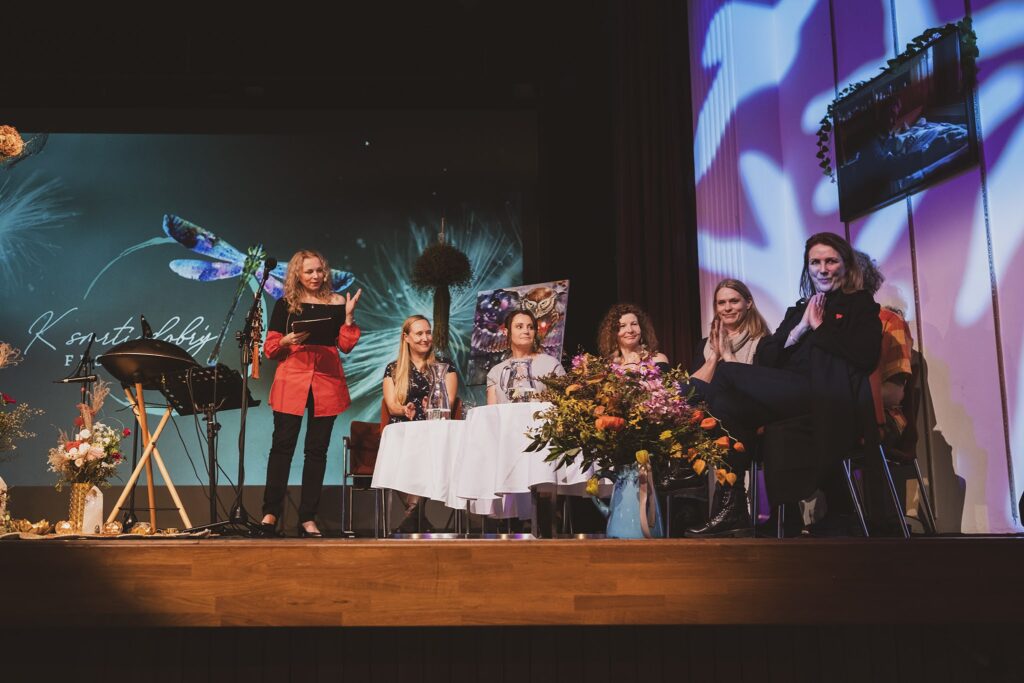
The packed programme had something for everyone, with talks, music and film screenings in the main auditorium throughout the weekend while workshops took place in smaller rooms. We missed a lot, as there was so much going on, and of course everything was in Czech. We had translators for our workshops and talks, but the rest of the weekend was a hubbub of a language that neither of us had managed to learn more than a few words of. It didn’t matter at all though, as we were really busy.
We attended workshops run by our first-night-in-Prague-housemates and fellow Brits (no translators needed) Alexandra Grace Derwen, renowned author, ceremonialist and leading facilitator on the doula training course at Sacred Circle Training Co. CIC and Alison Stoecker, former political advisor and writer about grief and trauma. We were gifted the most beautiful books of photographs of dying people by renowned photographer Jindřich Štreit and were also given little pots of chocolate ganache topped with white chocolate skulls. We learned about the Czech customs and laws around funerals, and we discovered that Ostrava kitchen staff find the notion of vegetarianism unusual, (and that fried cheese is a thing…).
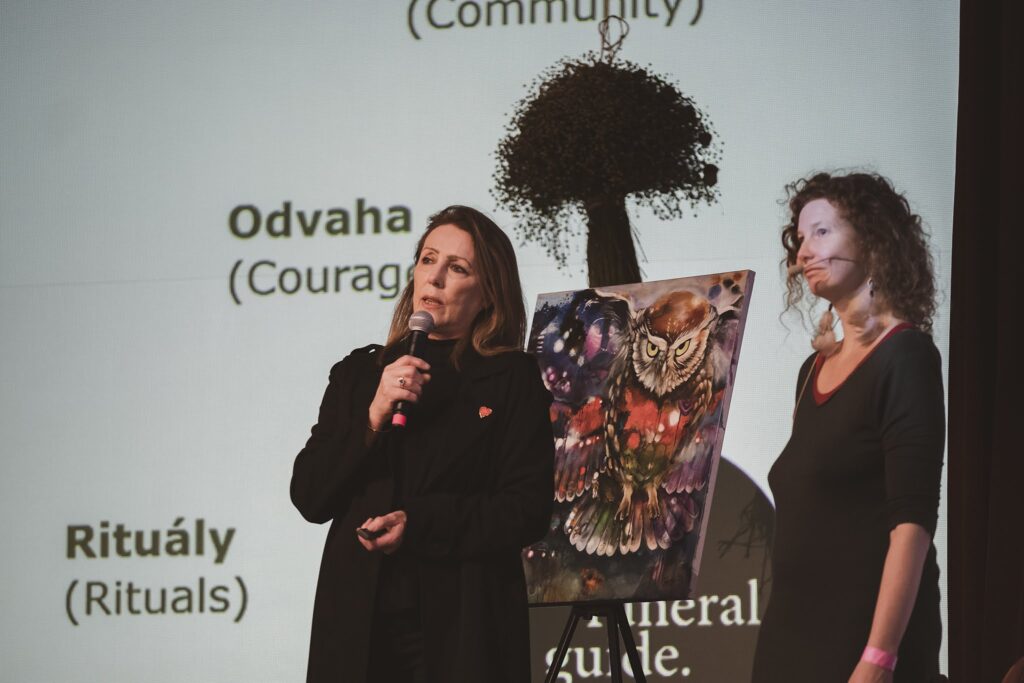
We ran an introductory 2-hour workshop on the Friday, delivered a talk about the impact of Covid on funerals in the UK on the Saturday, and then facilitated a 2-day workshop on the Sunday and Monday, introducing a concept that we have been developing together called The Power of Liminal Time.
We had a room full of experienced practitioners who were incredibly generous in sharing their wisdom and knowledge. At the end of the two days, the overwhelming consensus from everyone involved was a deep appreciation and understanding of the potential of the time before, during and after death as a profoundly important opportunity to really experience inner wisdom and peace.
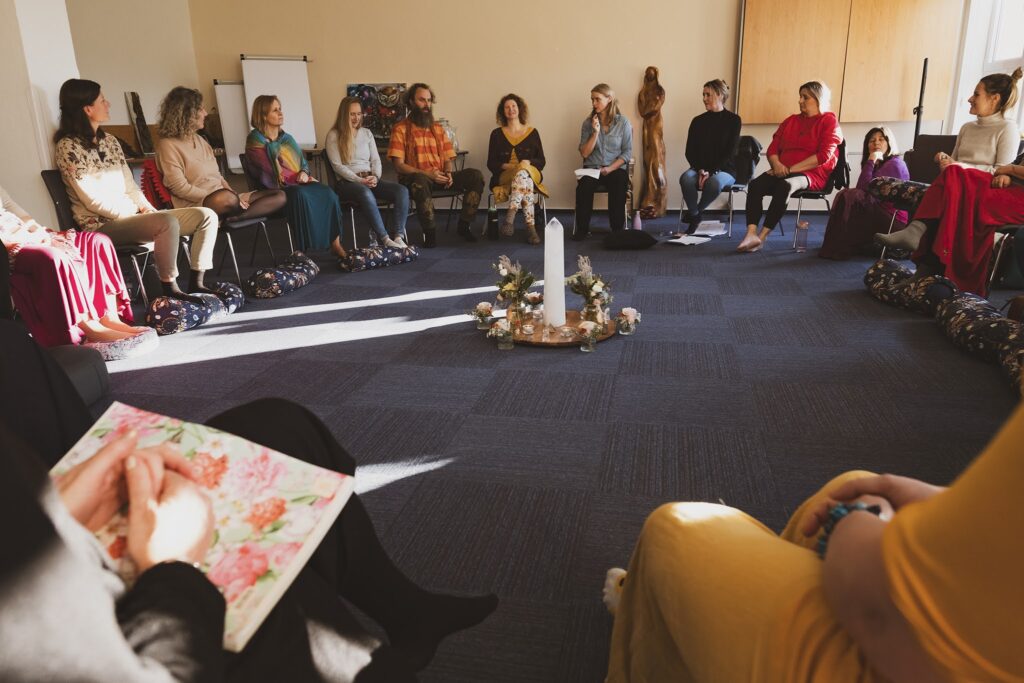
We left Ostrava the following day, returning to Prague for our last hours in Czechia. This time, our train tickets were for business class seats, which apparently involve complimentary Prosecco and pastries, even at 10am. Our fellow travellers clearly were accustomed to this way of travelling, but we opted for orange juice – our whole experience had been bizarre enough without adding in alcohol before lunch!
We came home to the UK early the following morning, feeling both replete and inspired. Being part of the festival had been so nourishing, meeting so many extraordinary people and having so many conversations about the thirst for shared knowledge about how to do death better.
The Festival in Ostrava is an incredible achievement by Jana, who is already planning next year’s event as something even bigger and better. It has given Isabel and I a springboard from which to launch a series of events here in the UK next year, and we are working hard developing our model and exploring where and when we can offer people an opportunity to come and be part of this exciting new work. Having launched it in Czech (with the assistance of our fantastic translators) we can’t wait to bring it to everyone here.
Watch this space!
